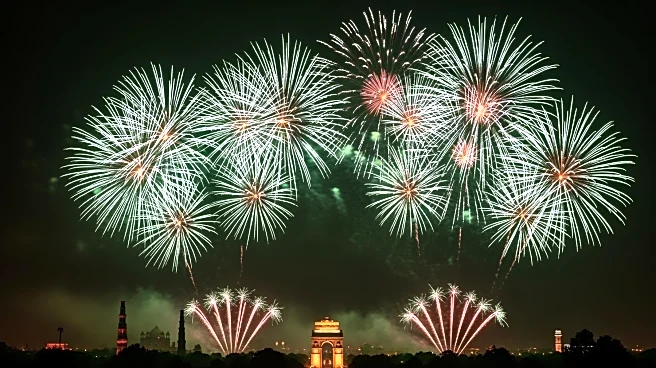What's Happening?
India's Supreme Court has authorized the sale and use of 'green crackers' during the Diwali festival, despite Delhi's air quality reaching hazardous levels. These crackers are designed to emit 20-30% less
pollutants compared to traditional ones. The decision comes as Delhi's air quality index shows PM2.5 levels between 300 and 400, which are considered extremely dangerous. The court's ruling aims to balance cultural practices with environmental concerns, although critics argue that even green crackers contribute to air pollution.
Why It's Important?
The decision to allow green crackers highlights the ongoing struggle between cultural traditions and environmental health in India. Delhi's air pollution is a recurring issue, exacerbated during festivals like Diwali. The ruling may impact public health, as high pollution levels pose serious risks, especially to vulnerable groups such as children and the elderly. This decision could set a precedent for how India manages cultural practices in the face of environmental challenges.
What's Next?
The implementation of the Supreme Court's decision will be closely monitored, with potential reactions from environmental groups and public health advocates. Authorities may need to enforce strict regulations to ensure compliance with the green cracker guidelines. The effectiveness of these measures in reducing pollution will be evaluated, possibly influencing future policies on environmental management during festivals.
Beyond the Headlines
The ruling raises ethical questions about prioritizing cultural practices over environmental health. It also underscores the need for sustainable solutions to pollution, which could involve technological innovations or shifts in public behavior. Long-term, this decision may influence how India addresses environmental issues in the context of cultural traditions.










